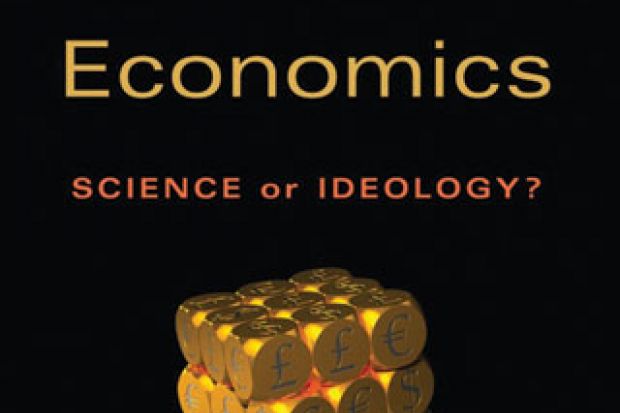Vincent Barnett, formerly research fellow in the economic history of film, University of Bedfordshire, is reading Roger Backhouse’s The Puzzle of Modern Economics: Science or Ideology? (Cambridge University Press, 2010). “Since the 2007-08 financial crash, economics has been subjected to heightened criticism. Backhouse takes on the two extreme views: economics as ‘autistic irrelevance’ and ‘ideological apologetics’, versus the ‘universal relevance’ of a ‘perfect market equilibrium model’. He astutely demonstrates that the truth is (or should be) in between. Radically moderate essential reading for academics.”

Caroline Flurey, postdoctoral research fellow in the Faculty of Health and Applied Sciences, University of the West of England, is reading Eleanor Catton’s The Luminaries (Little, Brown, 2013). “I’ve challenged myself to read all winners of the Man Booker prize, and what a book to start with. Set in the New Zealand gold rush and written in the style of a 19th-century classic, this epic book follows 13 men trying to solve a series of seemingly unconnected mysteries. Beautifully written and elegantly structured, it’s no surprise that this was last year’s winner.”

Nigel Rodenhurst, part-time lecturer in English, Aberystwyth University, is reading Martin Jacques’ When China Rules the World: The Rise of the Middle Kingdom and the End of the Western World (Penguin, 2009). “This book should be compulsory reading for any academic teaching for a term in China and considering her or his long-term options. In a book of predictions based on cogent arguments and respected sources, Jacques lets the West know that its domination is soon to be over and that a new world order based on ‘contested modernities’ is soon to arrive.”

Sir David Bell, vice-chancellor, University of Reading, is reading Ian McEwan’s The Children Act (Jonathan Cape, 2014). “McEwan has always been an acute observer of middle-class manners and frailties, despite occasional lapses into self-parody. This novel examines the human dimension in the interface between the law and personal religious belief. A late-middle-aged judge in a fragile marriage confronts, professionally and personally, a young Jehovah’s Witness who is unwilling to accept a life-saving blood transfusion. Powerful and moving.”

Bruce J. Schulman, William E. Huntington professor of history, Boston University, is reading Elizabeth Cobbs Hoffman’s Broken Promises: A Novel of the Civil War (Ballantine, 2011). “A teeming smorgasbord of pleasures: passionate romance, the intrigue of a spy thriller, courtly manners and diplomatic drama at the pivotal moment of the American Civil War. Displaying the skill of a master storyteller and the command of the distinguished historian that she is, Elizabeth Cobbs Hoffman brings alive a neglected but pivotal moment in America’s tumultuous relationship with Great Britain.”

